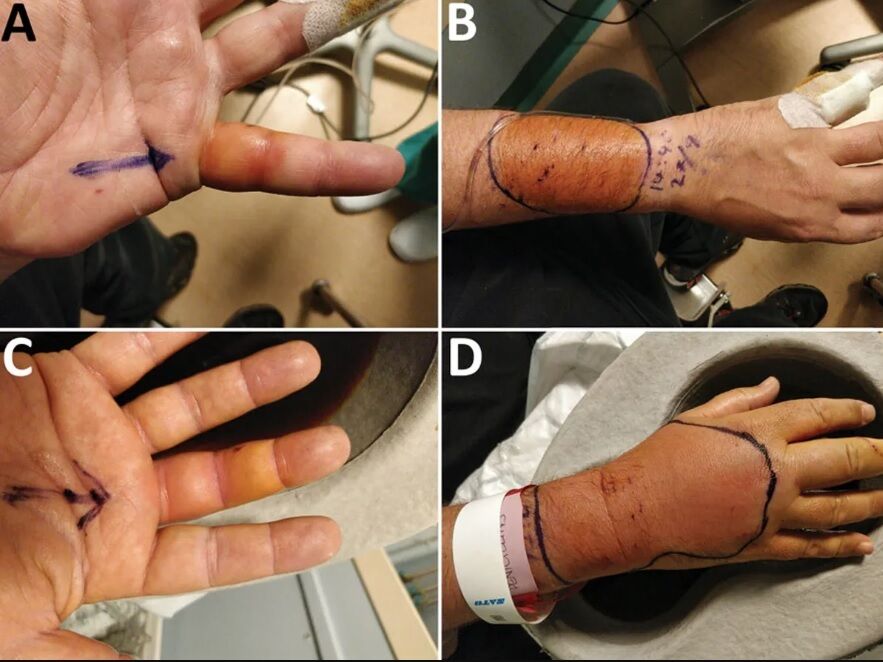A British man develops a previously unknown disease: it was caused by a cat

A resident of the United Kingdom contracted an unknown disease after being bitten by a stray cat. He developed an infection on his arm caused by a type of bacteria that was previously unknown to science.
According to Emerging Infectious Diseases, the 48-year-old man presented to the emergency department with a swollen arm that was in great pain. He said that about 8 hours ago he had been bitten several times by a wild cat.
The doctors first cleaned and bandaged the man's wounds, then gave him a tetanus shot and sent him on his way with a course of antibiotics.

However, within 24 hours, he returned with a worsening infection of his left little finger and right middle finger, as well as both forearms. Again, the wound was cleaned and this time the damaged tissue was surgically removed and intravenous antibiotics were administered. After five days of oral antibiotics, he made a full recovery.
Read also: A man in the US turned green and hairy: what are the causes (photo)
Stunned by what had caused the infection, the man's doctors decided to identify the mysterious pathogen using genome sequencing and biochemical profiling. In doing so, they found an entirely new species of bacteria they had never seen before. It belongs to the genus Globicatella, a group of small gram-positive bacteria similar to Streptococcus, the pathogen that causes scarlet fever and strep throat.
It is noted that this is the third known species of Globicatella bacteria. It joins G.sanguinis and G.sulfidifaciens. The first virus can infect humans and cause infections of the bloodstream, heart, central nervous system, and urinary tract. The second does not cause human infection.
The full genome sequencing showed that the new strain is most closely related to G. sulfidifaciens, although the two species differed by just over 20 per cent. "This suggests a separate and previously undescribed species," the scientists said in their report.
Thus, the scientists say, cats may be "reservoirs of yet undiscovered bacterial species that have pathogenic potential for humans."
As a reminder, a man in the United States contracted an infection that "eats" his muscles after being bitten by a relative.
If you want to get the latest news about the war and events in Ukraine, subscribe to our Telegram channel!
